The film Airport deals with the airport and airline operations during a particularly nasty snowstorm, with general manager Mel Bakersfeld (Burt Lancaster) trying to keep the place open while those on the Board of Directors for the airport want to shut things down so that they can deal with angry neighbors, ones who are threatening a million-dollar noise complaint lawsuit. The real threat here, however, isn’t number-crunching bureaucrats — this particular plot thread is brought up and quickly forgotten — but the true danger to our heroes is marital infidelity. I bet you thought I was going to say a mad bomber was the film’s chief threat, but you’d be wrong.
There is a mad bomber, he’s just not as important as this stuff.
Of the numerous characters that populate this movie — from stowaways to customs officers — it’s the people's complicated love affairs that takes up the bulk of the running time. Chief among them is Captain Demerest (Dean Martin), a serial adulterer who fully believes in the motto, “Fly my friendly skies,” and that a stewardess’ job is to be joystick happy, and he’s currently bumping uglies with chief stewardess Gwen Meighen (Jacqueline Bisset). That he is married to Mel Bakersfeld’s sister (Barbara Hale) doesn’t even seem to complicate things — she is completely aware of his infidelity and only hopes that someday he’ll be too old to cheat and finally stay home — as his main grip with Mel is in keeping the runways clear of snow. Of course, Mel can’t criticize Demerest’s faithlessness too much, as he himself has been cheating on his shrewish wife (Dana Wynter), and mother of his two children, with Tanya Livingston (Jean Seberg), the airport's customer relations agent.Love is the true disaster in this film.
When not dealing with such startling revelations as the stewardess being pregnant — which upon hearing this news Demerest quickly offers to pay for the abortion — or Mel’s wife informing him that not only does she want a divorce, but she has been having an affair of her own (Note: She is completely unaware of Mel’s dalliance with Tanya, but is leaving him because she can’t handle playing second fiddle to the airport), the film also deals with Joe Patroni (George Kennedy), the cigar-chomping chief mechanic for Trans World Airlines, trying to dig out a disabled plane that is blocking the airport’s key runway. there's also the shrewd customs agent Harry Standish (Lloyd Nolan) who finds a nervous and sweaty man clutching a briefcase to his chest to be a little suspicious, and then we have sweet old Mrs. Ada Quonsett (Helen Hayes), a serial stowaway artist who is trying to get to New York so she can visit her daughter. She's caught, but due to some more hijinks and shenanigans, she ends up on the flight that is also carrying the mad bomber (Van Heflin).“I’m sure I asked for the Non-Doomed flight.”
To say Arthur Hailey’s Airport is a little soap operatic would be a vast understatement — the bomb going off seems more like a brief interruption than a key plot element — and if it wasn’t for the caliber of actors on display, this film would most likely have fallen into obscurity by now. Helen Hayes won an Academy Award for her portrayal of the little old stowaway, and Van Heflin as the despondent bomber — yeah, he’s not really a mad bomber, more of a depressed bomber — seems too completely aware of what kind of film he’s in, and dives into the role with relish and a side of poutine.The poor airport security on display in this film will most likely leave modern viewers utterly gobsmacked, as not only does Helen Hayes’ character have no problem sneaking onto a plane, to the point of absurdity, but Van Heflin’s bomber stumbles through the airport sweating, shaking, peering around nervously, while clutching his briefcase to his chest, with barely anyone taking notice. It is truly staggering, and makes one wonder why planes back then weren’t just constantly falling out of the sky.
“Back off, I’ve got the script to Concorde: Airport 79 in here.”
Director George Seaton not only populated the film with seasoned actors, who could pull off such absurd roles with aplomb, but he also filled the script with very realistic dialogue between the men on the ground and the beleaguered crew aboard the fateful flight, all desperately fighting to bring the plane down safely. With the use of split screens and cool radio chatter, Seaton manages to build a credible amount of suspense — more than what you’d expect with someone like Dean Martin in the cockpit — and the resolutions of the various romantic entanglements land with a decent dose of pathos and realism, as not everyone gets a happy ending.Airport is very much a product of the times (with some moments being quite laughable), but it's still worth checking out simply for its impact on cinematic history, certainly in the way that it sparked a shift in the disaster genre.
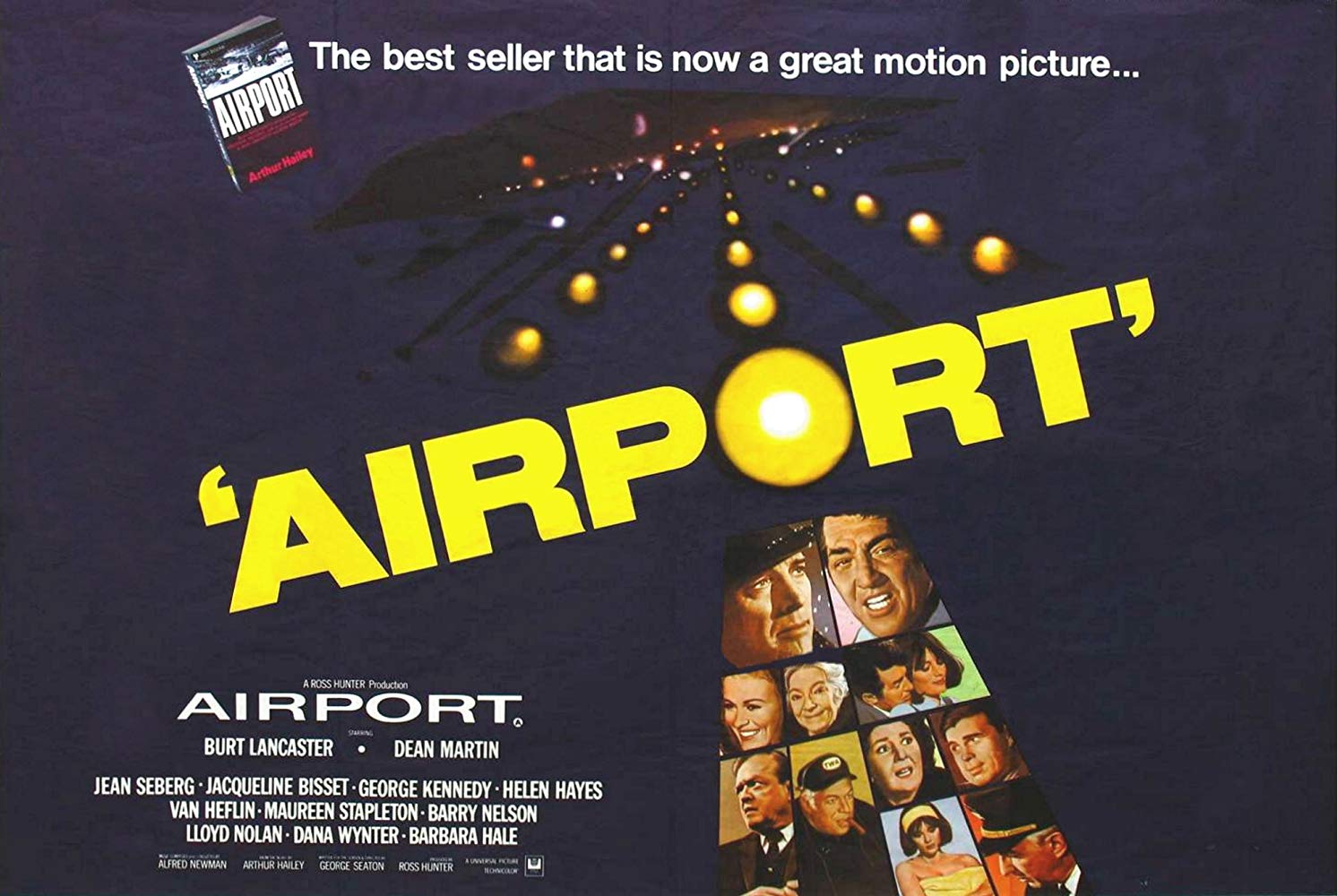
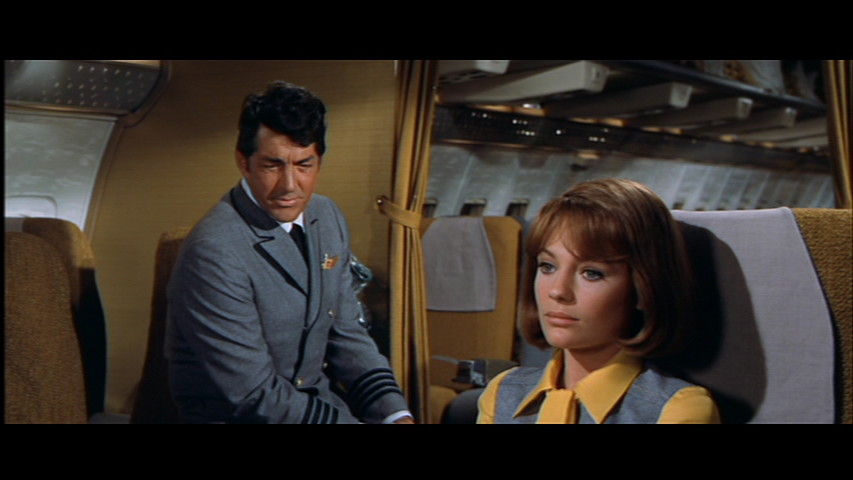
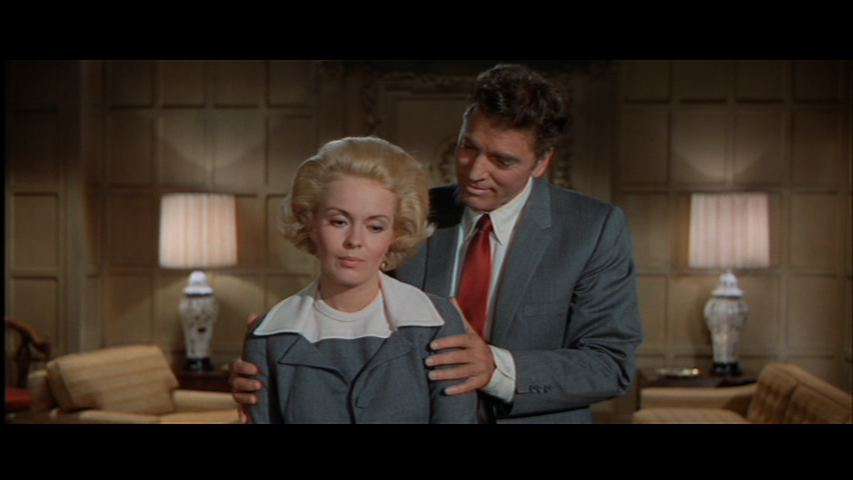
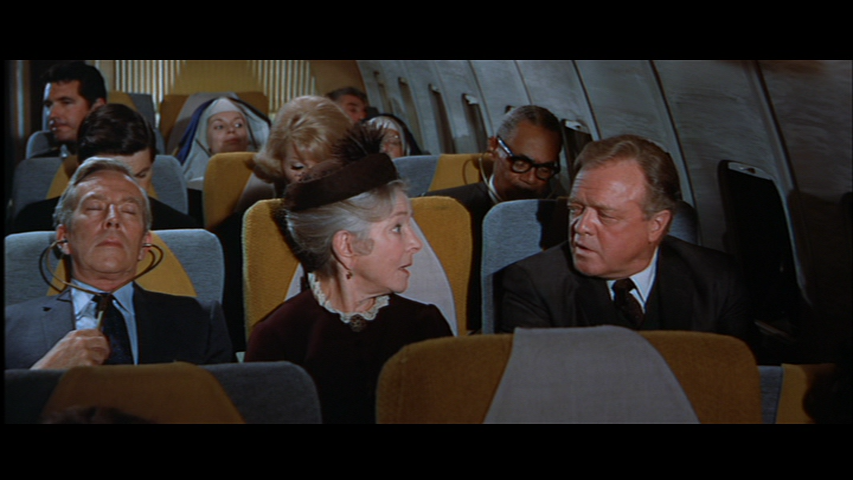
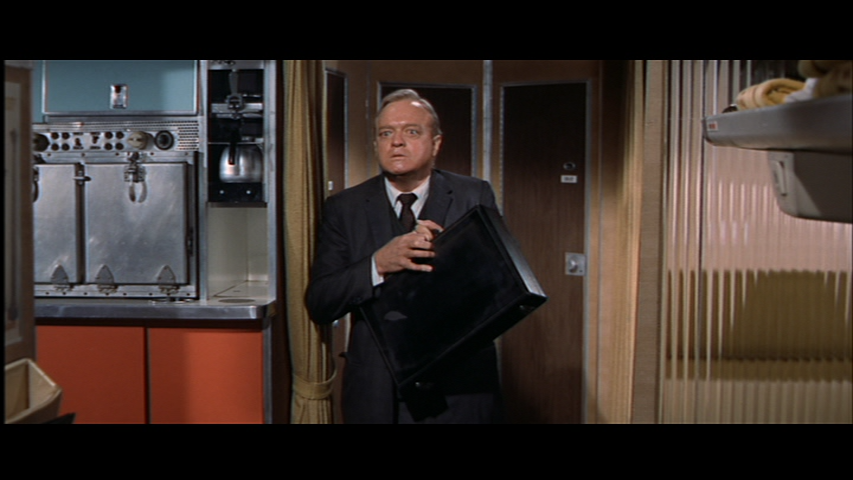
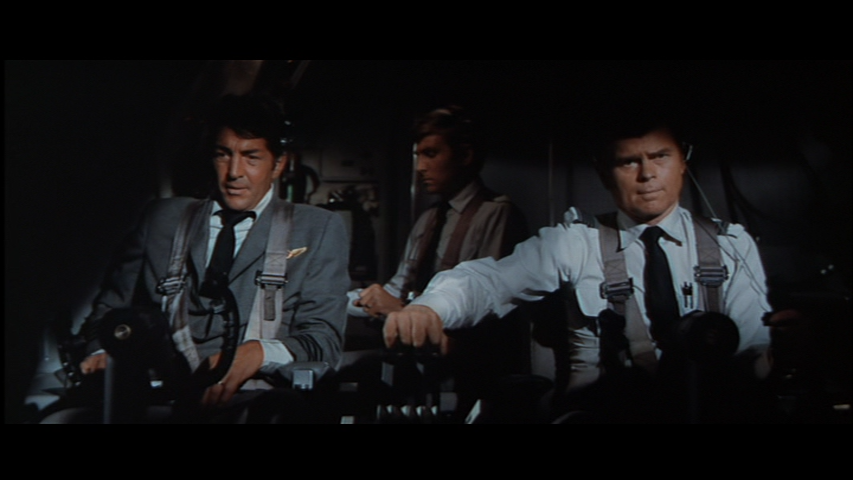

No comments:
Post a Comment